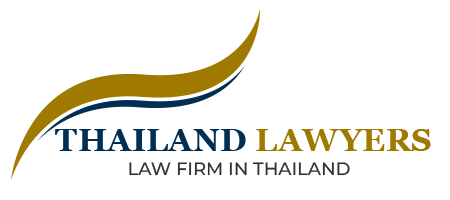Litigation in Thailand is the process of resolving disputes through the Thai courts, governed by a structured set of laws and institutions. While Thailand’s legal system is codified and rooted in civil law traditions, litigation here carries unique features that distinguish it from both Western and other Asian jurisdictions. Businesses, individuals, and foreign investors engaging in Thailand should understand not only the statutory framework but also the practical realities of how cases move through the courts.
This article provides an in-depth look at litigation in Thailand, covering the court system, procedures, types of cases, enforcement, and challenges commonly faced by litigants.
1. Legal Framework
The Constitution
Thailand’s Constitution establishes the judiciary as an independent branch of government, empowered to resolve disputes and safeguard rights.
Civil and Commercial Code (CCC)
Provides substantive law for civil disputes, including contracts, property, torts, family, and inheritance matters.
Criminal Code and Criminal Procedure Code
Regulate criminal offenses and the procedures for investigation, prosecution, and trial.
Civil Procedure Code
Sets rules for filing lawsuits, evidence, appeals, injunctions, and enforcement of judgments.
Other Specific Legislation
-
Consumer Protection Act (1979) for consumer disputes.
-
Labour Protection Act (1998) for employment disputes.
-
Intellectual Property and International Trade Act (1996) for IP cases.
-
Arbitration Act (2002, amended 2019) for arbitration-related matters.
2. Structure of the Thai Court System
Thailand has a multi-tiered court system with specialized courts:
Courts of First Instance
-
Civil Courts: Handle contractual, tort, property, and commercial disputes.
-
Criminal Courts: Hear criminal prosecutions.
-
Provincial Courts: Outside Bangkok, these courts handle both civil and criminal matters.
-
Specialized Courts:
-
Labour Court (employment disputes).
-
Tax Court (tax-related disputes).
-
Intellectual Property and International Trade Court (IP and trade disputes).
-
Bankruptcy Court (insolvency and reorganization).
-
Juvenile and Family Court (custody, divorce, adoption).
-
Appeals and Supreme Court
-
Court of Appeal: Reviews questions of law and fact.
-
Supreme Court (Dika Court): Highest court, dealing with final appeals.
Administrative Courts
Separate system dealing with disputes between individuals/companies and government agencies (e.g., wrongful permits, expropriation, government contracts).
Constitutional Court
Rules on constitutionality of laws, government acts, and political disputes.
3. Commencing Litigation
A case begins with the filing of a plaint (statement of claim) at the competent court. The plaint must set out facts, legal basis, and remedies sought.
The defendant responds with an answer, raising defenses and possibly counterclaims. Pre-trial hearings may be held to clarify issues.
For foreign litigants, documents often need to be translated into Thai and certified. Representation by a licensed Thai attorney is required in most cases.
4. Court Procedure
Evidence
Thai courts rely on a combination of documentary evidence, witness testimony, and expert reports. Unlike common law systems, there is no jury. Judges are the triers of both fact and law.
-
Documentary evidence: Contracts, invoices, land deeds.
-
Witnesses: Both parties and third parties may testify.
-
Experts: Often appointed by the court in technical disputes (e.g., construction, IP).
Hearings
Cases are typically divided into several hearings:
-
Preliminary hearings: Frame issues.
-
Evidence hearings: Witnesses testify, documents are examined.
-
Judgment hearing: Court delivers decision, often months after hearings conclude.
Duration
Civil cases in the Court of First Instance may take 1–3 years. Appeals add additional years. Complex cases, such as construction or commercial disputes, may last 5–7 years through final judgment.
5. Interim Measures
Thai law allows courts to grant interim measures, including:
-
Injunctions to prevent transfer or disposal of property.
-
Seizure of assets to secure claims.
-
Temporary child custody orders in family cases.
Such measures are discretionary and require proof of urgency and risk of irreparable harm.
6. Costs and Legal Representation
-
Court fees are generally a small percentage of the claim amount (capped in high-value cases).
-
Attorney fees vary widely and are not automatically recoverable from the losing party, unlike in some Western jurisdictions.
-
Parties bear their own costs, though minor compensation for costs may be awarded.
7. Enforcement of Judgments
Once a final judgment is obtained, the winning party must enforce it through the Legal Execution Department. Enforcement measures include:
-
Seizure and auction of assets.
-
Garnishment of bank accounts or wages.
-
Registration of liens over immovable property.
For foreign judgments:
-
Thailand does not recognize or enforce foreign court judgments directly.
-
A new lawsuit must be filed in Thailand, with the foreign judgment used as evidence.
-
By contrast, foreign arbitral awards are enforceable under the New York Convention.
8. Criminal Litigation
Criminal cases may be initiated by the public prosecutor or, in some cases, by private complaint. The accused enjoys rights to bail, legal representation, and fair trial, though bail may be denied for serious offenses.
Sentences can include imprisonment, fines, or both. For foreign defendants, deportation often follows completion of sentence.
9. Alternative Dispute Resolution (ADR)
Litigation is not the only option. Thai courts actively encourage ADR.
-
Mediation: Increasingly promoted, even at the pre-trial stage. Courts may suspend proceedings while parties attempt settlement.
-
Arbitration: Common in commercial, construction, and cross-border disputes. Awards are enforceable in Thai courts unless contrary to public policy.
10. Practical Realities and Challenges
A. Lengthy Proceedings
Litigation is often protracted, especially with appeals. Businesses must budget for long timelines.
B. Variations in Practice
Procedural practices can differ across provincial courts. Some courts are more flexible or efficient than others.
C. Language Barriers
All proceedings are conducted in Thai. Foreign litigants must rely on translation, which can affect nuance.
D. Enforcement Risks
Winning in court is only part of the battle—collecting on judgments requires diligence and sometimes persistence with enforcement officers.
E. Public Policy Considerations
Courts will not enforce contracts or claims that violate Thai public policy (e.g., nominee land ownership structures).
11. Illustrative Case Examples
Commercial Contract Dispute
A Thai company sued a foreign investor for breach of joint venture obligations. The Civil Court awarded damages, but the process took over four years due to appeals.
Property Dispute
Neighbors litigated over overlapping title deeds. The court relied on cadastral surveys and Land Office records, ultimately voiding one title deed.
Government Contract Dispute
A contractor challenged termination of a government project. The Administrative Court ruled in favor of the contractor, awarding compensation for lost profits.
12. Preventive Strategies
-
Draft clear contracts with Thai jurisdiction or arbitration clauses.
-
Maintain detailed documentation and correspondence.
-
Consider arbitration for high-value or cross-border disputes.
-
Be realistic about timelines and costs when pursuing litigation.
Conclusion
Litigation in Thailand is governed by a civil law system that emphasizes codified statutes, judge-led proceedings, and written evidence. While the legal framework is comprehensive, practical challenges such as lengthy timelines, language barriers, and enforcement difficulties mean that parties must approach litigation strategically.
For domestic and foreign litigants alike, success depends not only on understanding the substantive law but also on navigating the procedures, preparing evidence meticulously, and considering alternatives such as arbitration or mediation. Ultimately, litigation in Thailand is both a legal process and a test of patience, preparation, and persistence.

